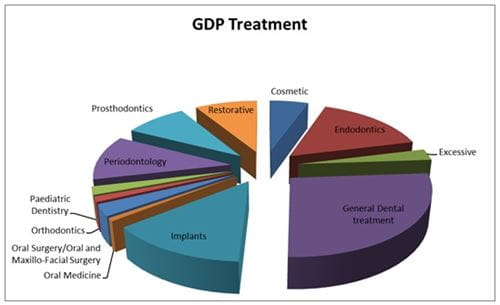
With over 100 years of claims history at MDDUS, we have a vast amount of information and knowledge which can help identify key causes of loss from negligence claims. Knowing where things commonly go wrong in day-to-day practice can be of great benefit to our members by helping to inform risk reduction strategies.
We have recently undertaken careful analysis of all MDDUS dental claims that have concluded over the past two years and this is beginning to produce some interesting results.
So what are the headline figures and key high level messages?
Part of the difficulties in taking on this kind of exercise is that a single case can of course contain multiple elements of potential causes of loss, and a pragmatic decision has to be made as to which is the most significant primary cause.
Cases closed under the ‘general dental treatment’ category accounted for the largest single cause of loss category.
Typical cases within this category related to: the development of infections, unnecessary or excessive treatments, ineffective anaesthesia, poor surgical performance resulting in soft tissue injuries, and delays in treating when action was indicated.
Within the ‘general dental treatment’ category the most frequent and costly claims related to endodontic work. Typically, the lowest cost claims were attributed to ‘oral medicine’ while claims relating to implants proved more expensive to settle than the “average” claim.
Key Risk Lessons
As part of our efforts to improve the quality of our data on GDP claims, our case owners are now inputting any relevant ‘key risk lessons’ which should provide further insight into areas where things are going wrong. The data suggests that the top five reasons for claims and difficulties arising centre around:
- Inadequate or poor record keeping
- Communication failures
- Insufficient or failure to take radiographs
- Issues surrounding physical examination
- Allegations of poor surgical performance.
Following on from the GDP claim exercise, our next step will be to examine retrospective cases where dental members have been referred to the General Dental Council.
It would be interesting to hear about members’ thoughts on these initial findings.
This page was correct at the time of publication. Any guidance is intended as general guidance for members only. If you are a member and need specific advice relating to your own circumstances, please contact one of our advisers.
Save this article
Save this article to a list of favourite articles which members can access in their account.
Save to library


